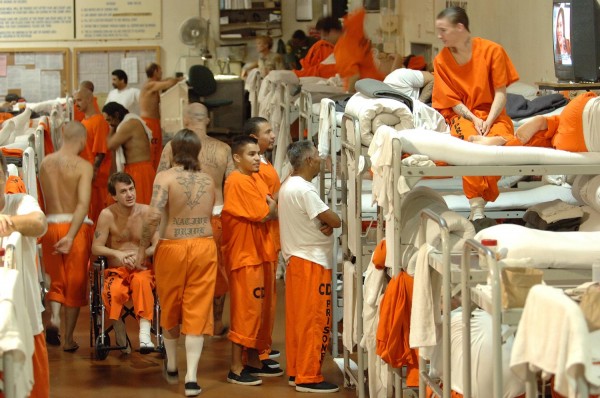More Accountability Needed in Prison Realignment Data Collection

When California realignment was implemented on October 1, 2011, the state relinquished responsibility for most low-risk detainees to each county's discretion. Parolee supervision, pretrial monitoring, community-based reentry programs and sentencing discretion is the duty of the fifty-eight separate Community Corrections Partnerships (CCPs).
These locally-based corrections advisory committees are chaired by the chief probation officer. Each consists of a judge, district attorney, county supervisor, public defender, chief of police, a victim's advocate, representatives from various departments, and NGOs working in social services.
CCPs differ in strategy, according to the priorities of each locale. This flexibility with funding gives each CCP power to respond to county-specific dilemmas. County autonomy has fostered a lack of accountability and consistency in three primary categories: data collection, risk assessment standards, and productive fund allocation.
According to an ACLU report published in September 2012, Governor Brown opted not to mandate thorough statewide data collection. Instead, Brown allowed the Board of State and Community Corrections (BSCC) and the Chief Probation Officers of California (CPOC) to collect data, "but only on a voluntary basis."
The Public Policy Institute of California observed in August 2012 that current data was "not sufficiently detailed" for a statewide assessment of procedure; "most counties submit paper records." A comprehensive 58-part report card from the BSCC released in July confirms uneven accountability:
"There is no requirement for CCPs...to provide data or outcome measures results to the BSCC."
According to that report, only 40 percent of all California counties submit exhaustive data. Another 48 percent submit data that the BSCC classifies as "not exhaustive," and 11 percent submit internally prepared "outcome measures." The BSCC has made progress in approaching counties individually and normalizing minimum standards of data collection. However, minimum standards may not be enough to evolve policies promptly.
The minimum data collection template classified "non-exhaustive" consists of nine variables:
- Post Release Community Supervision (PCRS) violations
- 1170 (h) violations (concerning supervision stage of split sentences)
- split sentencing
- electronic monitoring/GPS
- flash incarceration
- mandatory supervision (1170 (h), different than parole)
- Offenders from the CDCR
- Warrants
- Terminations (of supervision)
Among non-exhaustive counties, this formula occasionally includes, but aren't limited to recidivism, drug, alcohol and mental health referrals. However, total variables rarely exceed ten. Most counties with simplistic data collection are new to post-realignment accountability, and have yet to develop an approach to detailed analysis.
On the other hand, counties with strong data like Los Angeles and Contra Costa understand the need to elaborate on context.
The recidivism rate from Contra Costa contains eleven sub-variables like arrests versus convictions or technical versus new law violations, allowing the state a deeper perspective on not just the frequency, but the nature of local re-offenders. In Los Angeles, data on mental health services include 10 sub-variables concerning the nature of and reaction to treatment provided.
Even among "exhaustive" counties, data differs where policy differs. Sacramento examines its parole violations in great detail, but makes no mention of 1170 (h) violations that accompany split sentencing.
Even among counties with more accountability, incomplete records mirror incomplete strategies; "exhaustive" applies only to data depth and not to breadth. For example, Los Angeles lacks a pretrial release program and therefore lacks pretrial data.
Establishing consistent and high standards in data collection can foster sound corrections policy. Mandating county standards in data collection is a possible alternative, since statewide data collection has already been rejected. It may also help the state assert its preferences for incarceration alternatives.




